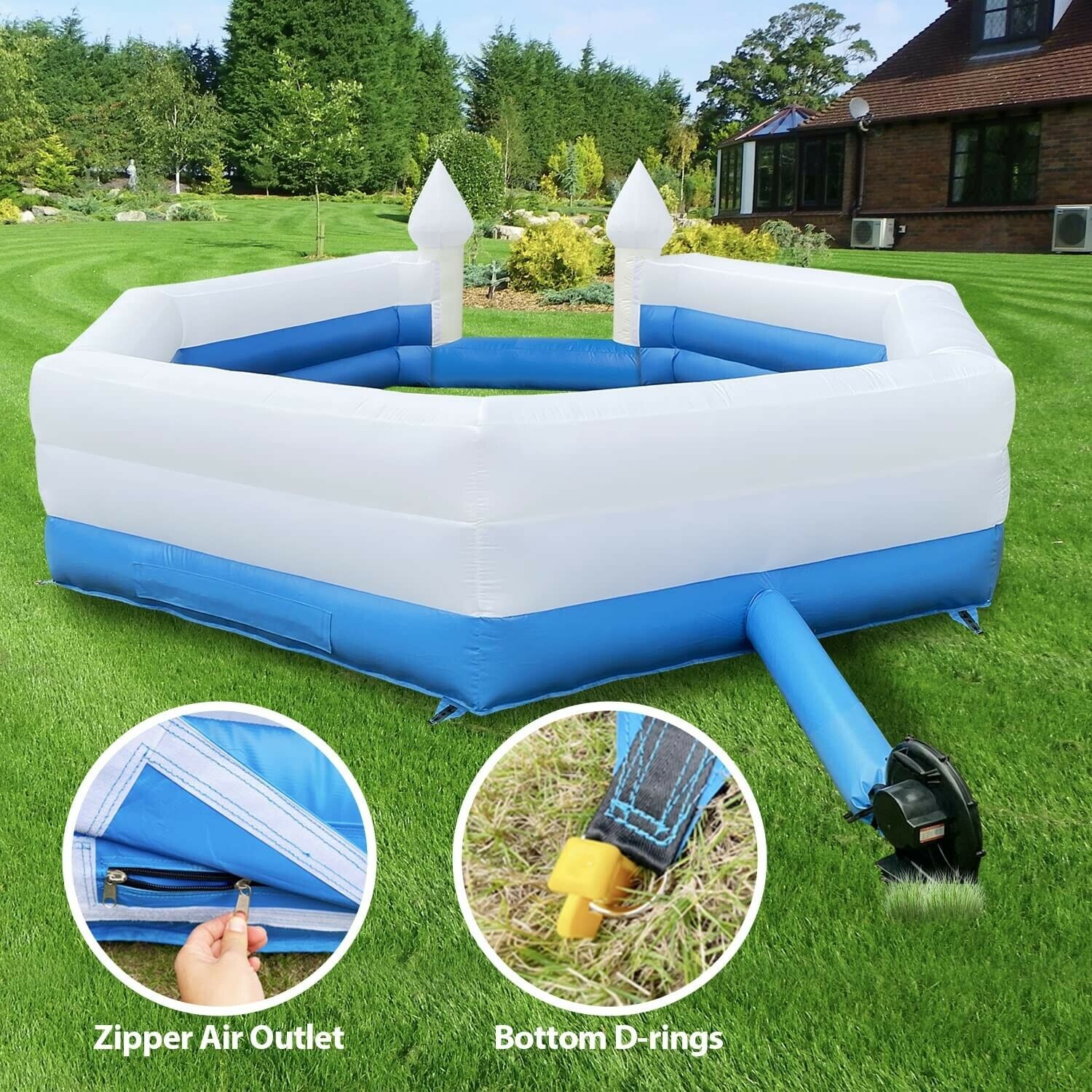
Those looking for a challenge can try making a Buzz-wire game. You can make this classic battery-powered science experiment from cardboard and wigglywire. The game requires the player to guide a wire loop through a maze, while trying to avoid obstacles. If the loop touches a wire, the buzzer beeps. It is a test of hand-eye coordination and steady-handedness.
You will need two pieces copper or iron wire, a pack of batteries, and a buzzer to play the game. The buzzer, which is a simple 2-wire device that consists of a ground lead and a red lead, is simple.
The main battery pack connects the buzzer to it. To prevent the wire from tripping and securing itself to the main battery pack, wire insulation tape is applied to the wire.

A small lithium polymer battery pouch cell can charge the buzzer via a USB cable. This battery pack is concealed in a hollow in the game's base. The AA batteries have a cylindrical shape and a flat ground at the end. They also have a tip that rises.
Although it may seem complicated, the game is actually quite simple. You must move a wire loop through a maze using a loop of steel wire. The loop should not touch the wire. The buzzer goes off a little more when the wire touches the wire. It is best to play with others, but you can also play it alone. The buzzer also has a cool light effect.
You can still play the game in the virtual realm if necessary. Although the virtual version looks similar to the real-world one, the pointer guides your progress along a narrow path. The time limit is set to finish the game. Your goal is to get the loop as far as possible. There are several versions of the game available. They range from very simple to very complicated.
You may be required to create 50 wires for the game, but that's not all. There are many ways to hide wiring. Cover plates and a multitude plug-in connector covers can be used. These plugs-ins (also known as connector Jacks) can be used hide the wiring.

Also, the circuit is made using a small amount foam core. This circuit connects light bulb and battery pack. To protect electronics from the elements, the game has an optional backboard.
Although the game appears simple, it is difficult to master. As the pointer must travel along a narrow path, it requires steady hands. Although it isn't the most exciting game to play, the buzzer is sure fun to watch. It's a great way for people to learn about electricity.
The buzz-wire board game is an excellent example of engineering and battery-powered science. It began as a simple board game. The game was made by a company called Live Wire. It has since grown to be a video game publisher. Live Wire is also known to be a leader in Cave shoot-em -ups for Nintendo Switch.
FAQ
Do you think it is okay to ask for discounts while shopping?
You should always try to negotiate a better price on buying items. It is polite to ask if they have any discount code. You can ask politely if they have any discount codes. This could save you time and money.
How do you use your debit card when shopping online?
It all depends upon what you are buying, and how much. You should consider a debit or credit card if there are no extra fees associated with using your credit card.
You don't need to have cash on hand to buy a item. A debit card will not incur additional fees.
You can withdraw money using a debit card without incurring interest and other charges.
You can also buy petrol and groceries at ATMs which is very convenient.
Is it worth signing up for rewards and insider programs wherever you shop?
Rewarding yourself with great rewards is great but not always worthwhile. When you do sign up to an online program, ensure there is value. You should know how much money and time you are spending on it.
If you are signing up for a rewards card just because it has a good signup bonus, be careful. Sometimes these bonuses aren't worth the hassle of applying for one.
You should also ask yourself why it is that you want to be a part of a rewards program. Many people join because they see their friends doing it. However, if you aren't interested in the products or services offered by the business, you will likely not stick with it long enough for any benefits to accrue.
What if I want to buy clothes online?
Absolutely! It's actually easier than ever to order clothing online. All major retailers offer free returns. Simply print off a label and drop it in the mail.
But, you won't get a refund until the item arrives. To return the product if you have a different opinion, please let us know.
Statistics
- Your Online Purchases 79% of Americans purchased goods and services online in 2018, which is expected to exceed 90% in 2023. (meetfabric.com)
- Last Black Friday, I bought a stove from Lowes at 40% off, receiving 24 months of interest-free financing (from Lowe's). (meetfabric.com)
- An approximately 90% increase in price affords Hotel X the opportunity of extreme profits under severe circumstances. (dos.ny.gov)
- A report from the U.S. Census Bureau found that in the first quarter of 2022, an estimated $250 billion was spent on retail e-commerce sales.1 (thebalance.com)
External Links
How To
How to shop online safely
Online shopping is one the easiest ways to purchase goods and services. However, this convenience comes at a price. Online shopping has many advantages, but there are also risks. The greatest threat is identity theft. Identity theft is the biggest risk. Identity thieves can use your personal information (name, address and credit card number) in order to steal money or make fraudulent loans against you. They then make a profit by selling your stolen information on a black market. Here are some tips for staying safe online.
-
Use secure websites. SSL encryption is free for most online stores. All information you enter on their website, including names, addresses, phone numbers and credit card details, is protected by SSL encryption so that only you can view it. It makes it impossible for anyone to read what you input. Make sure that you have a valid certificate issued from a recognized CA when choosing an online store. When browsing, look for the padlock icon in the URL bar.
-
Keep your password secret. When you sign up for your first account, you will receive an email asking to confirm your username and email address. These credentials should not be shared with anyone. You should also not write these credentials down. If someone steals your wallet they can access your accounts. Instead, save them on your personal computer. A good rule of thumb is to change your passwords once every three years.
-
Keep track and keep track of your orders. Sending items to yourself and others is a good idea. Keep track of the addresses you send them. Many people are tricked into believing they have sent something, but it was actually delivered to another person. Before paying for shipping, make sure you verify the tracking number. Never ship anything without receiving proof of delivery. If you aren’t satisfied with your service, contact the company as soon as possible.
-
Make sure you know who your dealings with. Many websites will require sensitive information from you, such as your name, date of death, Social Insurance Number, and bank routing numbers. These details will help identify you, so it is important to be cautious about giving them out. Google "what's the need?" to determine if a website has this information. You'll find many solutions.
-
Be wary of pop-up windows. Many sites bombard you with pop-ups advertising deals, special offers, and other products. Some of these ads may seem legitimate, but others are designed to trick you into revealing private information. For example, an anti-virus program may ask for your credit card number, bank information, and social insurance numbers. To avoid being tricked, don't click any suspicious links.
-
Beware of Phishing Scams Phishing scams involve hackers pretending to be from reputable businesses in order for consumers to hand over their financial details. Phishers can send emails that look suspiciously like they are from banks or retailers. They encourage users to log on and update their account information. Once your financial information has been given, hackers can take control of your finances. Hackers can even empty out your bank accounts or transfer funds between different accounts. There are many resources available to help you spot phishing scams, such as How to Spot an Email Scam.
-
Do your homework. Make sure you read the fine print before agreeing to a deal. Clear and simple terms and conditions must be included in any contract that you sign. You should carefully read through the contract and make sure you understand what you are agreeing to. It's important to avoid hidden fees and charges when trying to save money.
-
Look around. You shouldn't be afraid of shopping around. Compare prices on different websites until finding the lowest price. Compare shipping costs for multiple items. Shipping costs can vary greatly depending upon which website you use. For expedited shipping, it is worth paying a bit more.